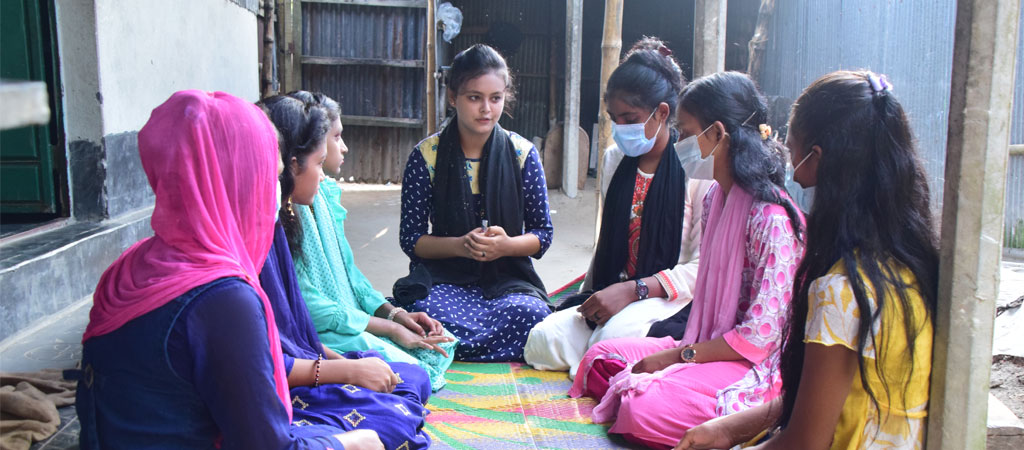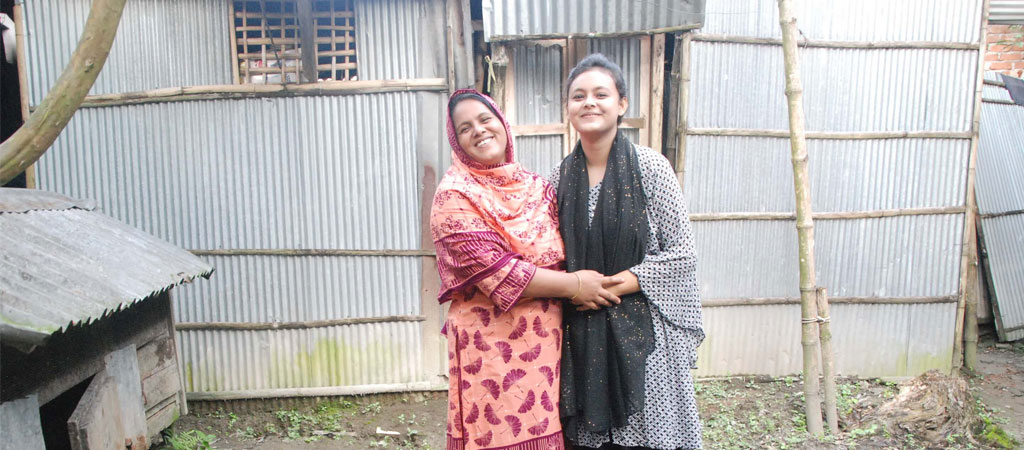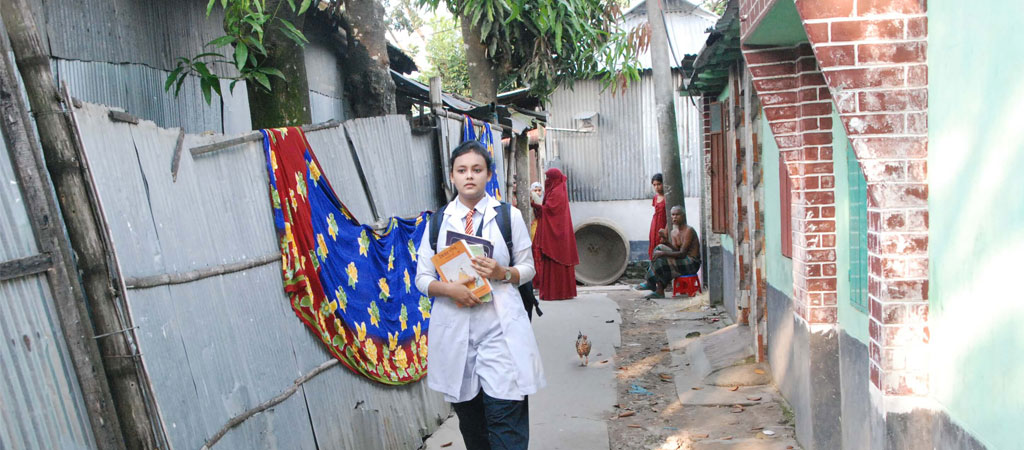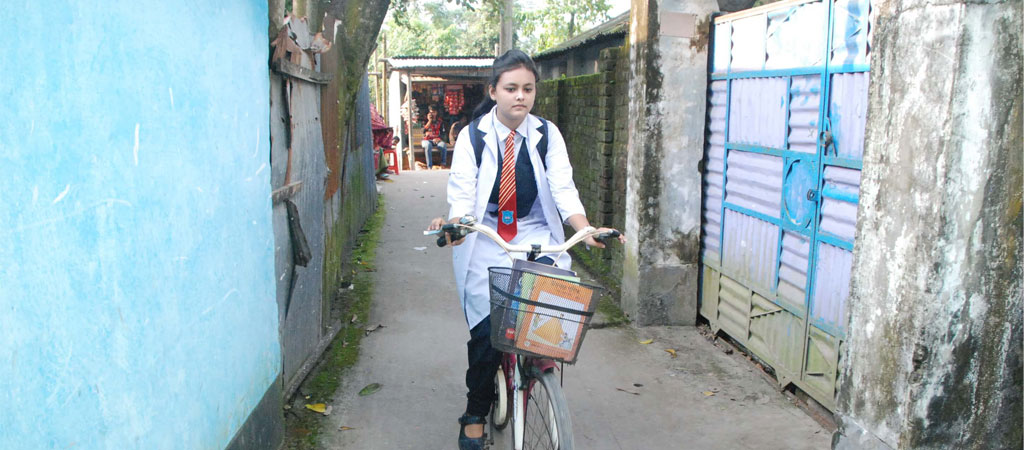Education bars child marriage for climate migrants in urban slums

Urban slums and low-income settlements house approximately 47 per cent of Bangladesh’s population. Life in these settlements is rife with challenges, especially for children.
Despite the national push for education, millions of children are out of school in these settlements because there is an opportunity cost attached with it — schoolgoing children do not have the time to earn extra income for the family through informal work.
Fifteen-year-old Alfish Kaniz Nice from Rangpur’s Mistripara has been facing similar challenges. Her family, originally from Munshiganj, moved to the low-income settlement in Rangpur city after losing their home and land to river erosion.

Displaced by climate change, the family now struggles to make ends meet in a new city. Alfish’s father is unemployed, and her mother makes a meagre Tk 7,000 monthly (USD 82).
Alfish’s family is among the many who are migrating to the urban centres of Bangladesh because of climate change. Bangladesh has one of the fastest-growing urban populations in Asia. By 2030, it is estimated that over half of the citizens in the country will be living in cities. Climate displacement has brought an array of socioeconomic challenges, and children remain especially vulnerable in this volatile state.
“I had dreams of being a computer engineer someday. But I almost had to drop out of school because my family couldn’t afford it,” Alfish explained. Her situation reflects the macro scenario — Bangladesh Bureau of Educational Information and Statistics (BANBEIS) reports that the dropout rate in secondary school is 38 per cent.

In these circumstances, addressing the rights of people living in urban slums and low-income settlements is a dire need. United Nations Development Programme (UNDP)’s Livelihoods Improvement of Urban Poor Communities project (LIUPCP) has been awarding education grants to children, especially girls, to ensure completion of primary and secondary school and give them a fair chance at higher studies and employment. Through this initiative, UNDP is supporting the Government of Bangladesh in achieving SDG-4, education for all.
Child marriage is often a direct consequence of poverty, and Alfish’s family was considering marrying her off. That is until her mother, Nazma, came to know about the education grant from LIUPCP. The project’s field workers encouraged Nazma to avail of the grant, which is meant for students aged eight to 18. The recipients of the grant are children who are at high risk of dropping out of school, and priority is given to households living in extreme poverty. To date, 19,126 urban-poor households in 19 cities across Bangladesh have received the education grant for their primary and secondary-level schoolgoing children.

“We received a conditional stipend of BDT 9,000 (USD 105) for continuing her education. We used that money to pay for school fees, books, stationery, and uniforms,” said Nazma.
In 2020, almost 100 per cent of LIUPCP’s education grantees had completed the academic year, pleasantly exceeding expectations. At some locations, the grants also facilitated students in attending and continuing online classes during pandemic-induced lockdowns.
Launched in 2018, LIUPCP is the largest urban development project in the country. The project is financially supported by the United Kingdom’s Foreign, Commonwealth, and Development Office (FCDO) and Bangladesh’s Local Government Division.